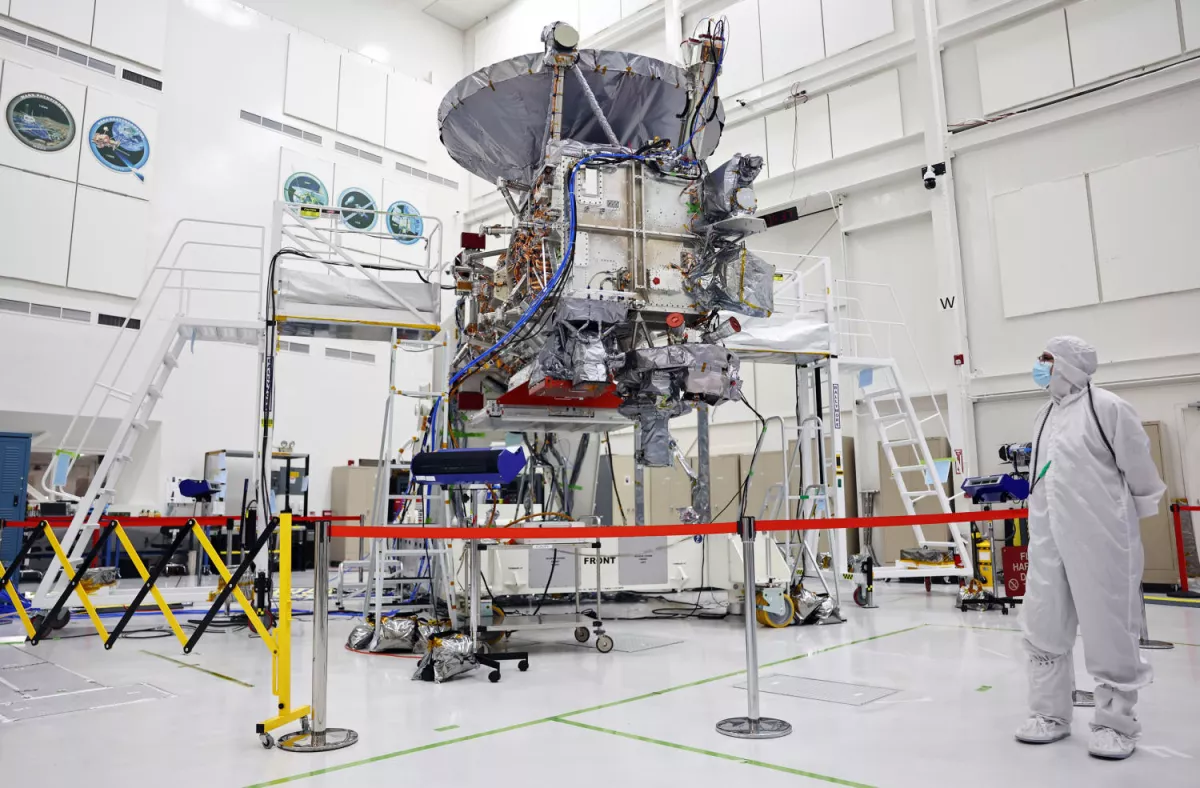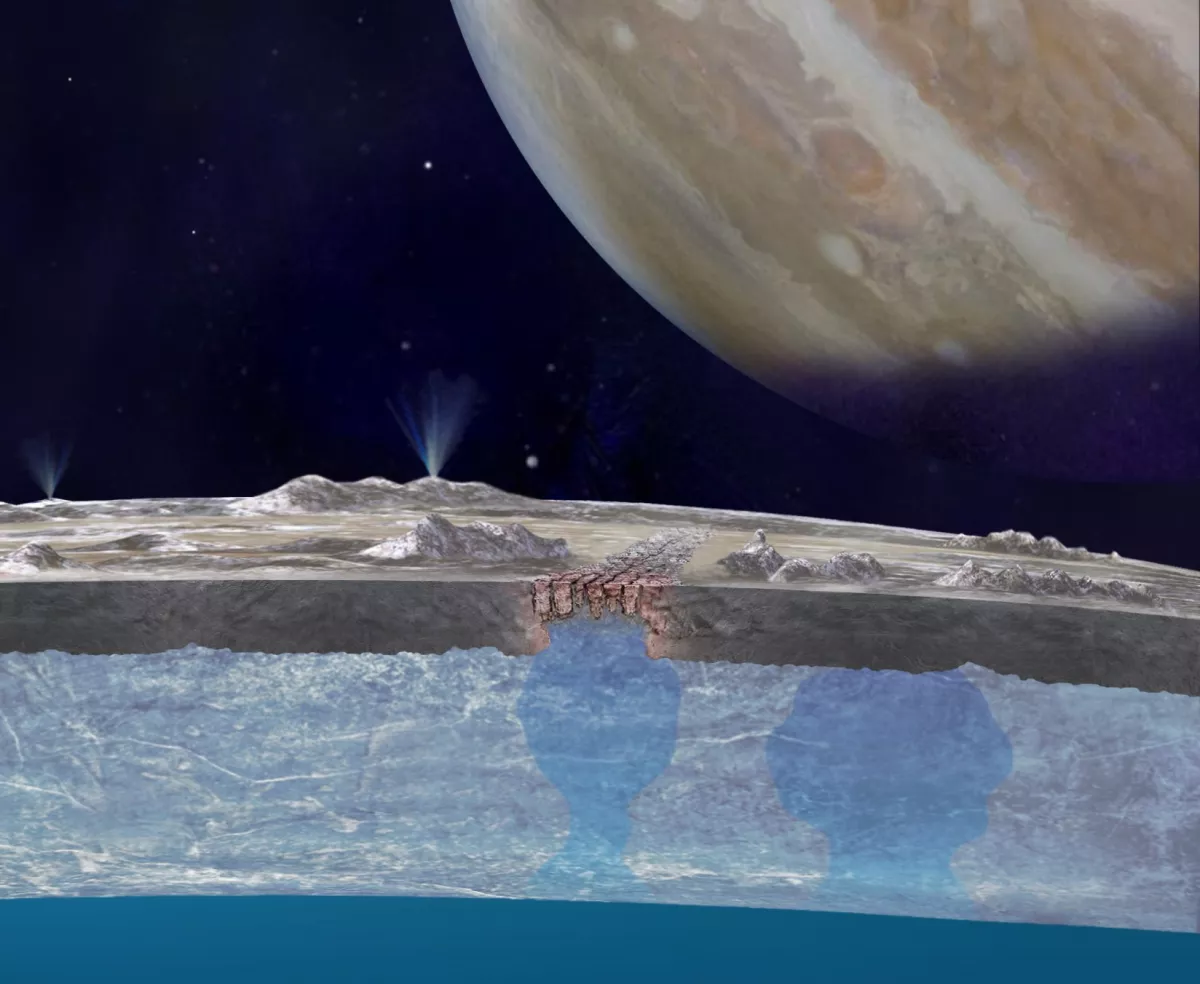Research into ice-water systems could be key that discovers life beyond Earth
As NASA's Europa Clipper embarks on its historic mission to explore Jupiter’s icy moon Europa, pioneering new research published by a professor at the Texas A&M research university may transform our understanding of icy ocean worlds across the solar system and provide important clues to whether life indeed exists beyond our Blue Planet.
The study, published by Dr. Matt Powell-Palm in the Nature Communications journal and co-authored with planetary scientist Dr. Baptiste Journaux from the University of Washington, introduces a novel thermodynamic concept called the "cenotectic." As noted in an article by SciTechDaily, this groundbreaking idea examines the stability of liquids under extreme conditions, offering vital insights into the potential habitability of icy moons like Europa.
Europa Clipper is the largest spacecraft NASA has ever developed for a planetary mission. It was launched on October 14, 2024 out of the Earth's gravity by a SpaceX Falcon Heavy rocket to travel 2.9 billion kilometers to arrive at Jupiter in 2030. NASA expects the Clipper to fly 49 times around the icy moon to gather data that will tell scientists Europa's internal ocean has the conditions needed to harbor life.
The exploration of icy ocean worlds marks a significant frontier in planetary science, with a primary focus on evaluating their ability to support life. Powell-Palm’s research tackles a core question in this domain: under what conditions can liquid water persist on these distant, frozen celestial bodies? By defining and quantifying the cenotectic—the lowest temperature at which a liquid can remain stable under varying pressures and solute concentrations—the research provides an essential framework for interpreting data from upcoming planetary missions.

The study merges Powell-Palm’s expertise in cryobiology, particularly in the low-temperature thermodynamics of water for medical applications like organ preservation, with Journaux’s specialization in planetary science and high-pressure water-ice systems. This interdisciplinary approach has yielded a comprehensive framework to address one of the most intriguing challenges in planetary exploration.
“With the launch of NASA’s Europa Clipper, the largest planetary exploration mission ever launched, we are entering a multi-decade era of exploration of cold and icy ocean worlds,” said Journaux. “Measurements from this and other missions will tell us how deep the ocean is and its composition. Laboratory measurements of liquid stability, and notably the lowest temperature possible (the newly defined cenotectic), combined with mission results, will allow us to fully constrain how habitable the cold and deep oceans of our solar system are, and also what their final fate will be when the moons or planets have cooled down entirely.”

The research, spearheaded at Texas A&M by mechanical engineering graduate student Arian Zarriz, highlights the university’s robust expertise in water-ice systems and its enduring commitment to excellence in space research across multiple disciplines. With the establishment of the Texas A&M Space Institute, the university is set to further cement its role in space exploration, driving innovative missions that push the boundaries of human knowledge.
“The study of icy worlds is a particular priority for both NASA and the European Space Agency, as evidenced by the flurry of recent and upcoming spacecraft launches,” Powell-Palm noted. “We hope that Texas A&M will help to provide intellectual leadership in this space.”
As planetary missions like Europa Clipper broaden our understanding of the solar system, researchers at Texas A&M and other institutions are preparing to interpret the vast influx of data these missions will generate. By integrating experimental findings, such as those from Powell-Palm and Journaux, with mission results, scientists aim to uncover the mysteries of cold, ocean-bearing worlds and assess their potential for harboring life.
By Nazrin Sadigova








